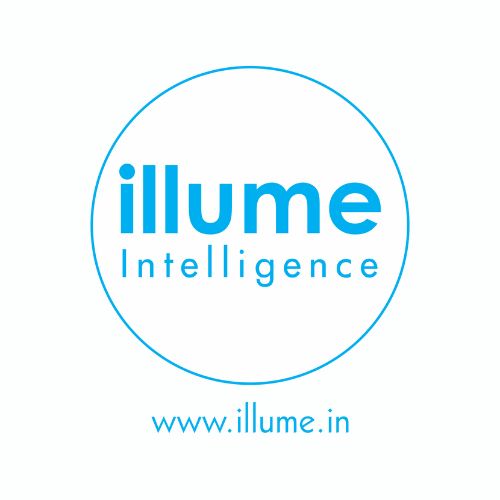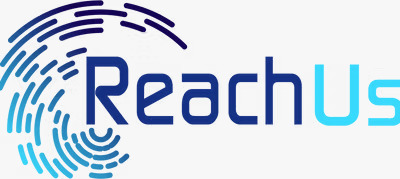
The manufacturing industry stands as a pillar of global economic stability, driving innovation and production across various sectors. However, as technology advances and industrial processes become more interconnected, the sector faces an escalating threat: cyber attacks. In an era where everything from assembly lines to supply chains relies heavily on digital infrastructure, the vulnerabilities have never been greater.
Cybersecurity breaches in manufacturing are not merely inconvenient; they can be catastrophic. A single cyber-attack has the potential to halt production, compromise sensitive data, and inflict substantial financial losses. Beyond the immediate monetary impact, these incidents erode trust, damage reputations, and disrupt the very fabric of operational continuity.
This blog explores some of the most significant cyber attacks that have recently shaken the manufacturing world. Each incident provides a stark reminder of the industry's vulnerabilities and highlights the critical need for robust cybersecurity measures. From ransomware attacks that paralyze operations to data breaches that expose valuable intellectual property, these real-life examples offer invaluable lessons.
Below are some high-profile cyber attacks, let’s dissect the nature of each breach, and uncover the key takeaways that can help fortify defences in the manufacturing sector. Understanding these threats is the first step in safeguarding our industry against future attacks and ensuring the resilience of our operations in the face of an ever-evolving cyber threat landscape
1. Belgian Beer Firm Duvel - 2024
* Attack Type: Ransomware
* Impact: The ransomware attack on Duvel, a renowned Belgian beer firm, disrupted their brewing operations and halted production. The attackers encrypted critical data, demanding a ransom for its release.
* Business Loss: The financial impact included ransom negotiations, system restoration costs, and operational disruptions leading to production delays. The exact cost was not disclosed, but the impact on production schedules and supply chains was significant.
* Key Takeaway: Investing in advanced threat detection and response capabilities can help identify and mitigate ransomware threats before they cause significant damage. Regular security audits and employee training on recognizing phishing attempts are crucial preventive measures.
2. MKS Instruments (Feb, 2023)
* Attack Type: Ransomware
* Impact: MKS Instruments, a key supplier of instruments and process control solutions, experienced a ransomware attack that disrupted its IT systems and affected its ability to fulfil orders and maintain production schedules.
* Business Loss: The financial losses included costs related to system recovery, production downtime, and potential loss of business. The exact financial impact was not disclosed, but the disruption to operations was substantial.
* Key Takeaway: Comprehensive cybersecurity strategies, including regular system updates, employee training, and incident response planning, are vital to mitigating the effects of ransomware attacks. Ensuring that backups are regularly tested and can be quickly restored is essential for business continuity.
3. Dole (Feb, 2023)
* Attack Type: Ransomware
* Impact: Dole, a leading producer of fresh fruits and vegetables, was targeted by a ransomware attack that disrupted its operations and affected its supply chain. The attack forced Dole to temporarily halt production and distribution, impacting its ability to deliver products to retailers.
* Business Loss: The financial losses included ransom negotiations, system recovery costs, and potential loss of revenue from disrupted supply chains. While the exact financial impact was not disclosed, the operational disruptions were significant.
* Key Takeaway: Investing in robust cybersecurity defences, including endpoint protection and advanced threat detection, can help prevent ransomware attacks. Implementing a multi-layered security approach and regularly updating systems are critical steps in protecting operations.
4. Brunswick Corporation (June, 2023)
* Attack Type: Ransomware
* Impact: Brunswick Corporation, a leading manufacturer of recreational products, faced a ransomware attack that disrupted its IT systems and impacted production and distribution. The attack forced the company to temporarily halt operations, affecting its ability to fulfill orders.
* Business Loss: The financial impact included costs related to system recovery, production downtime, and potential loss of business. The exact financial losses were not disclosed, but the operational disruptions were significant.
* Key Takeaway: Regularly updating and securing IT systems, along with a strong incident response plan, can help mitigate the effects of ransomware attacks. Ensuring that employees are trained to recognize phishing attempts and other social engineering tactics is essential.
5. Samsung (Electronics and Chip Manufacturing) - 2022
* Attack Type: Ransomware (LockBit)
* Impact: Samsung faced a ransomware attack that disrupted its semiconductor production operations. The attackers encrypted critical data and demanded a significant ransom for the decryption key.
* Business Loss: The financial impact included ransom negotiations, production delays, and system recovery costs. The exact financial losses were not disclosed, but the disruption to semiconductor production was substantial.
* Key Takeaway: Ensuring continuous monitoring and advanced threat detection can help identify and mitigate ransomware threats before they cause significant damage. Implementing regular security audits and employee training on cybersecurity best practices is crucial.
6. General Motors (Automobile) - 2022
* Attack Type: Data Breach
* Impact: A data breach at General Motors exposed sensitive employee information, including personal and financial data. The breach was linked to a phishing attack that compromised internal systems.
* Business Loss: The financial impact included costs related to data recovery, employee notifications, and potential regulatory fines. The exact financial losses were not disclosed, but the breach significantly affected employee trust and required extensive mitigation efforts.
* Key Takeaway: Implementing robust phishing defences and employee training programs is crucial to prevent data breaches. Ensuring proper configuration and continuous monitoring of IT systems can help detect and respond to threats promptly.
7. Denso (Automotive Parts Supplier) - 2022
* Attack Type: Ransomware
* Impact: Denso, a major automotive parts supplier, faced a ransomware attack that disrupted its IT systems and affected production. The attackers demanded a significant ransom for data decryption.
* Business Loss: The financial impact included ransom negotiations, system recovery costs, and potential production delays. The exact financial losses were not disclosed, but the operational disruptions were substantial.
* Key Takeaway: Investing in advanced threat detection and response capabilities can help identify and mitigate ransomware threats before they cause significant damage. Regular security audits and employee training on recognizing phishing attempts are crucial preventive measures.
8. Foxconn (Electronics and Chip Manufacturing) - 2022
* Attack Type: Ransomware (DoppelPaymer)
* Impact: The ransomware attack on Foxconn's Mexico facility led to the encryption of critical data and disruption of operations. The attackers demanded a ransom for the decryption key.
* Business Loss: The financial impact included ransom payment negotiations, system restoration costs, and production delays. The exact financial losses were not disclosed, but the disruption to operations was substantial.
* Key Takeaway: Investing in robust ransomware defences, including endpoint protection and incident response planning, is essential for mitigating such attacks. Ensuring that backups are regularly tested and can be quickly restored is critical for business continuity.
9. Molson Coors (Beverages) - 2021
* Attack Type: Ransomware
* Impact: Molson Coors, a leading beverage manufacturer, experienced a ransomware attack that halted brewing operations and delayed product shipments. The attackers encrypted critical data, demanding a ransom for its release.
* Business Loss: The financial impact included ransom negotiations, system recovery costs, and potential loss of revenue from delayed shipments. The exact financial losses were not disclosed, but the disruption to operations was significant.
* Key Takeaway: Ensuring continuity of operations through robust cybersecurity measures and contingency planning is crucial for minimizing disruption. Regular backups and an effective incident response plan are essential for recovering swiftly from ransomware attacks.
10. WestRock (Paper and Packaging) - 2021
* Attack Type: Ransomware
* Impact: WestRock, a major paper and packaging company, faced a ransomware attack that disrupted its IT systems and affected production and delivery schedules. The attack forced the company to shut down certain operations temporarily, impacting their ability to meet customer demands and deadlines.
* Business Loss: The financial losses included costs related to system downtime, recovery efforts, and potential loss of business due to delayed shipments. While the exact figure was not disclosed, the interruption in production and subsequent delays likely incurred significant expenses.
* Key Takeaway: Implementing comprehensive cybersecurity measures, including regular backups and incident response training, can significantly reduce the impact of ransomware attacks. Continuous monitoring and timely system updates are crucial to safeguarding operations.
11. JBS USA (Food Processing) - 2021
* Attack Type: Ransomware
* Impact: JBS USA, one of the largest meat processors globally, was forced to halt operations in North America and Australia due to a ransomware attack. The disruption impacted meat supplies and had a cascading effect on the supply chain, causing delays and shortages.
* Business Loss: JBS paid an $11 million ransom to the attackers to regain control of their systems. Additionally, the company faced significant costs related to operational downtime, recovery efforts, and potential loss of revenue from disrupted supply chains.
* Key Takeaway: Having a robust backup system and an effective incident response plan is essential for minimizing damage and recovering swiftly from ransomware attacks. Businesses must ensure that their data is regularly backed up and that they can restore systems quickly without succumbing to ransom demands.
12. Visser Precision (Aerospace and Defense Supplier) - 2020
* Attack Type: Data Breach and Ransomware (DoppelPaymer)
* Impact: Visser Precision, a supplier for aerospace and defence companies, experienced a data breach that led to the theft and public exposure of sensitive data, including proprietary data from aerospace and defence clients.
* Business Loss: The financial impact included costs related to data recovery, potential legal consequences, and damage to reputation. The exact financial losses were not disclosed, but the breach significantly affected client trust and required extensive mitigation efforts.
* Key Takeaway: Protecting sensitive data through encryption, access controls, and continuous monitoring is essential to prevent data breaches. Implementing robust incident response plans and regularly updating systems are crucial for minimizing damage.
13. Steelcase (Furniture Manufacturing) - 2020
* Attack Type: Ransomware
* Impact: Steelcase, a major office furniture manufacturer, faced a ransomware attack that forced the company to shut down its IT systems, impacting production and delivery. The attackers encrypted critical data and demanded a ransom for its release.
* Business Loss: The financial losses included costs related to system recovery, production delays, and potential loss of business. The exact financial impact was not disclosed, but the operational disruptions were substantial.
* Key Takeaway: Regularly updating and securing IT systems, along with a strong incident response plan, can help mitigate the effects of ransomware attacks. Ensuring that employees are trained to recognize phishing attempts and other social engineering tactics is essential.
Conclusion
The wave of cyber attacks on the manufacturing industry over the past few years serves as a stark reminder of the critical importance of cybersecurity. From the ransomware attack on Renault-Nissan to the data breach at General Motors, these incidents have exposed significant vulnerabilities and underscored the pressing need for robust security measures.
Each attack we explored reveals the multifaceted nature of cyber threats and their far-reaching impacts—production halts, financial losses, intellectual property theft, and reputational damage. These consequences highlight the necessity for manufacturers to adopt comprehensive cybersecurity strategies, including regular system updates, rigorous risk assessments, and well-rehearsed disaster recovery plans.
The time to act is now. Manufacturers must prioritize identifying and patching vulnerabilities, implementing strong risk management frameworks, and fostering a culture of cybersecurity awareness across all levels of the organization. By learning from these high-profile breaches and investing in advanced threat detection and response capabilities, the manufacturing sector can build a resilient defence against future cyber threats.
In an era where digital and physical realms are increasingly intertwined, safeguarding our manufacturing processes is not just about protecting assets; it's about ensuring the continuity and integrity of an industry that drives global progress. Stay vigilant, stay prepared, and let's work together to fortify the manufacturing industry against the ever-evolving landscape of cyber threats.



